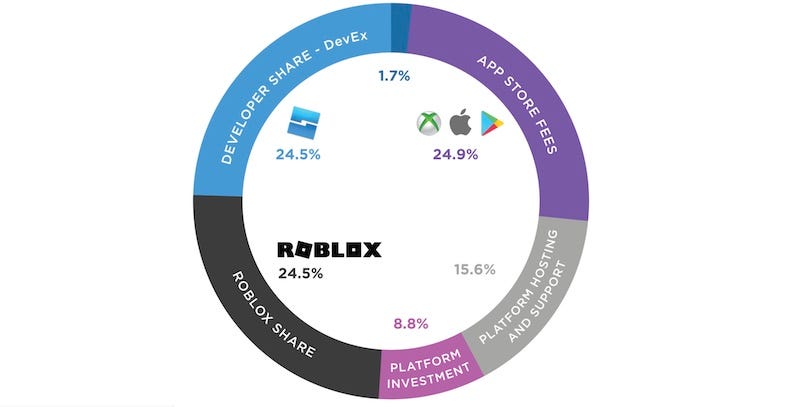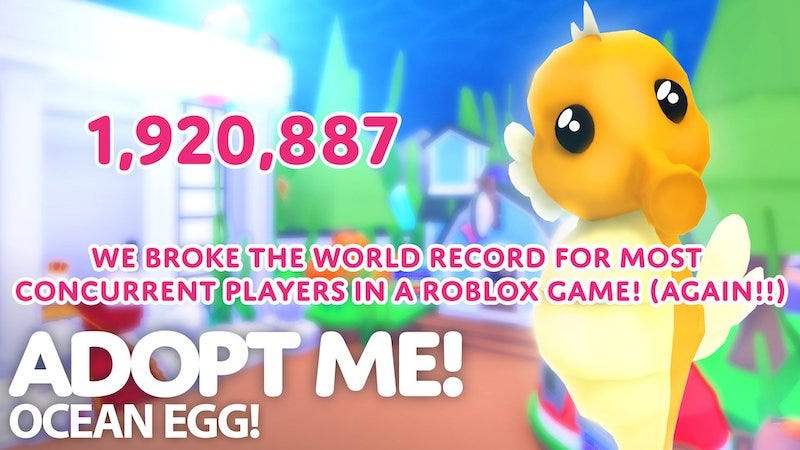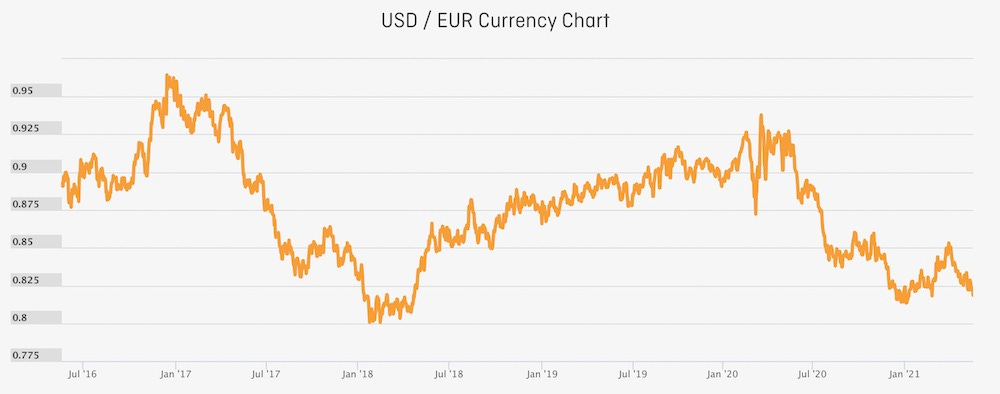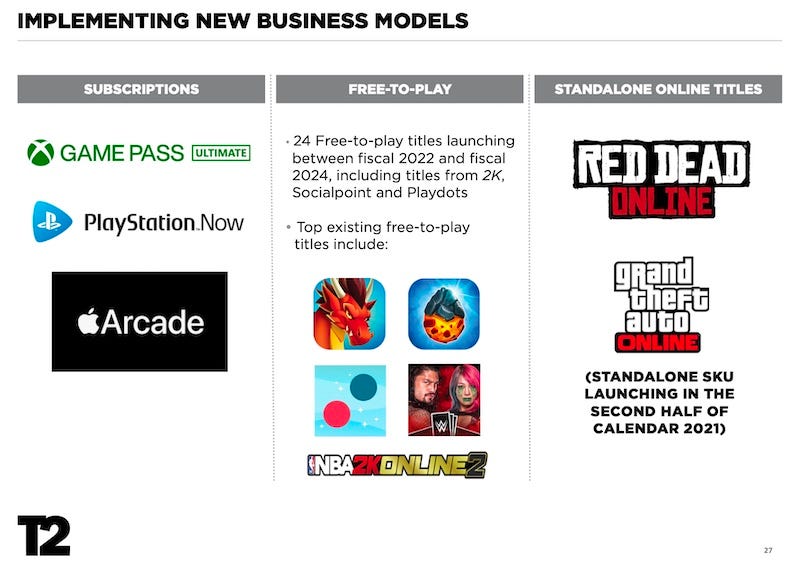Should we take Roblox seriously as a game discovery platform?
Publikováno: 19.5.2021
Plus pricing, streaming events, and lots more!
[The GameDiscoverCo game discovery newsletter is written by ‘how people find your game’ expert & GameDiscoverCo founder Simon Carless, and is a regular look at how people discover and buy video games in the 2020s.]
Well, we find ourselves here again, don’t we? Reading another GameDiscoverCo newsletter and wondering how the authors pack so much game discovery and platform information into just two newsletters a week. (The main method: we consume a greater percentage of the Internet than any one person should.)
Reminder: if you’d like to get a third ‘game market analysis’ newsletter every Friday, access to the paid sub-only Discord to hang with your peers, and also be first to get the GameDiscoverCo game discovery eBook when it launches in a couple of weeks (oo!), you can subscribe to GameDiscoverCo Plus here. And… let’s go:
How much attention should you be paying to Roblox?
You probably know at least a little about Roblox, since it’s kind of a big deal right now. Every time I go to Target with my kid, we see Roblox and Minecraft action figures inundating the toy aisles, and according to this CNN Business explainer, as many as 75% of American children ages 9 through 12 play Roblox regularly with friends. (If you listen to some in the Epic/Apple trial, it’s not ‘a game within a game’, but… yeh.)
And what differentiates the game from Minecraft - which does allow you to sell levels and skins, but is a lot more selective - is that anyone can go ahead and try to make games within Roblox with more complex mechanics, and try to get them to take off. So yes, it’s a platform with discovery questions of its own.
If you read Roblox’s page about this, the company notes: “A unique advantage of the Roblox platform is its inherent social fabric of over 30 million daily users enjoying close to 2.5 billion hours of engagement each month. The social connections users create on Roblox make it easier for developers to leverage network effects and achieve viral growth. In fact, users on Roblox engage in and explore over 20 unique experiences per month.”
So naturally, this is leading to devs considering making games for Roblox professionally. But.. the kind of games that are popular in Roblox are not always the kind you might be used to.
One of the best ‘explainers’ I’ve seen recently is from Australian dev Marigold Bartlett, who notes: “Most of the games on Roblox seem to be half-baked, broken, made by people who are either very young, or otherwise definitely not professional developers. Quite a few, though, including all of the vaguely popular ones, as well as the games on my list, are large-scale efforts which have clearly taken a ton of work and consideration. They may be made by people who are indeed very young, but also by people who are well past the point of amateurism.”
So this is why you’re seeing start-up game studios like Supersocial, “an indie games studio focused on creating insanely fun games for the metaverse, starting with Roblox”, or Talewind, a UK company planning on doing similarly. And companies like Uplift Games (who make Roblox smash Adopt Me!) are expanding rapidly due to record concurrents:
There’s a belief that planning and professionalism can help Roblox games break through. Alongside this, a few indie devs have become fascinated with the platform and just decided to make experimental titles - Dicey Dungeons creator Terry Cavanagh’s ‘Climb The Giant Man Obby’ being a great example - here’s his Twitter thread on how dev went.
But the sandbox nature of Roblox, and the ability of the user-base to not sweat the aesthetics has flipped the script a bit. Bartlett comments in her explainer: “The best games we’ve played have felt as if they’re unrestricted by the common ‘rules’ of being a ‘good’ game developer in a professional context; ugly graphics and questionable physics are both expected and forgiven, which is conducive to a lot of truly novel experiences unique to Roblox.”
And then there’s compenstion. If you look at the revenue share explanation - see the top image in this section - yes, it is saying that devs get 24.5% revenue share for any Robux spent on your Roblox game. Then you realize it’ll be harder to make a profit than many other platforms. (Especially because multiplayer games tend to favor ‘winner takes all’ situations. But hey, you could be that winner...)
But there’s still something here. And I found this Vice profile of Uplift Games (Adopt Me!) to be very helpful in terms of vocalizing what a more dedicated/pro dev team could bring to this, if they can actually break through with an idea.
Uplift’s Josh Ling comments: “There's this demand for that weekly content drive and these young people don't necessarily have the experience to deal with that… they just work themselves to the point of burnout and then they stop updating the game for a few months and then it falls off the charts. And you see this cycle repeat again and again."
So… the concept of producing a hit Roblox game and then leveraging your GaaS skills to keep it going seems to be the main pitch for professionals entering the Roblox dev environment. (I don’t personally think ‘making more game-y games’ is necessarily what the target audience wants, but YMMV.) And can any of these new studios do it? I guess we’ll find out!
The ‘dollar to euro’ parity debate in game pricing
Some of our consulting work on game pricing (a particular area of interest!) suggests you try to price your premium game more aggressively than you think. But we’ve also been looking into pricing for currencies that your game sells in.
Most of the time, your anchor pricing, at least on Steam, will be US dollars. And Steam provides a recommended set of pricing for other currencies. In particular, we’d like to look at Euros, because the price of your game in Euros compared to US dollars is probably the biggest revenue impact.
Valve does not change price recommendations in real-time based on currency fluctuations. (Though they do sometimes tweak, due to extreme changes such as the Turkish lira.) So the above 5-year chart for Euro/dollar exchange shifts is not reflected in recommendations. And arguably, it shouldn’t be, because it’s about ‘purchasing power’ and what real money can buy.
In fact, third-party site SteamDB actually stores a page for each game showing differences between Steam pricing and a dev’s final pricing. Here’s one for Days Gone (most prices significantly different!), and here’s one for Dicey Dungeons (see below - all prices the same as Steam recommends):
Which brings up my main point here. Most of the time, we would recommend ‘price your game $5 more than you are comfortable with, and go with Valve’s recommended regional pricing’ as a good stretch pricing strategy.
But you can also look at pricing the same in Euros as you do in US dollars. This is historically what retail games have done in Europe. That sometimes leads to complaints from players, but those were often 60 Euro games, not 20 Euro games.
And we see plenty of good games that sell the majority of their copies digitally doing this: Evil Genius 2 is $39.99 and 39.99 Euros, and Planet Zoo is $44.99 and 44.99 Euros. We even noted that Satisfactory is $29.99, 29.99 Euros and 27.99 UKP - here’s its ‘comparison to Valve suggested pricing’ page:
So it looks like Satisfactory makes perhaps 8-10% more worldwide revenue, lifetime, just by being slightly more aggressive on regional pricing. It’s worth at least discussing - particularly because some digital stores aren’t as flexible on pricing increments as Steam?
(And don’t forget you will be discounting your game later. So I’m not sure I see this as being intrinsically unfair, as long as you give your players a chance to buy cheaper in the end? YMMV. Also I live in the U.S., so Europeans, feel free to shout at me…)
Call for collaborators: failure stories!
Was chatting to a friend the other day about the fact we don’t hear enough interesting stories about why aspects of games didn’t work out. And when I was on the GDC Independent Games Summit board, we conceptualized and ran a yearly ‘Failure Workshop’. (Looks like it’s back for 2021 for the virtual version of the show, btw!)
Predictably, it was about projects/situations that just didn’t work out. Here’s 2017’s excellent version with Michael Molinari, Adriaan De Jongh & Tim Rogers, for example:
So I wondered - would any of readers be interested in honestly sharing a game discovery situation that didn’t end well. We can talk about your expectations, actions, final results, and what you learned from it? If so, contact us and we’ll put something together with you.
The game discovery news round-up..
So, time for the varied game discovery/platform news. Thought it was interesting to start out with this Take-Two earnings presentation slide, which shows how much the big publishers are moving away from ‘buy once, play through’ games.
Clearly, they do still make some of those - guessing the next Bioshock will be one, for example. But pushing on subscription revenue (recurring $ is so hot in public markets right now!), IAP, and online/persistent splitouts of existing AAA titles like GTA and Red Dead Redemption is where the ball is rolling to. Now, onward:
Intriguing to read Geoff Keighley talking about Summer Game Fest, his digital E3 showcase alternative, which has an exclusive kick-off event with reveals and Day Of The Devs on June 10th, but also merges into the general ‘anyone can stream announces this summer!’ As he notes with Ubisoft Forward: “it’s ultimately Ubisoft’s event and [both] E3 and Summer Game Fest are co-streaming the event.” (Oh, and unrelated to Summer Game Fest, Guerrilla Collective has announced two streaming showcases on June 5th and 12th!)
Talking of E3, they’ve definitely announced some things are happening for the all-digital event from June 12th-15th, including “an online portal with access to virtual exhibitor booths with video content and articles, live streams, and social elements like forums, customizable user profiles, leaderboards, and ‘lounges’.” But not really sure on underlying platforms, interest, and general vibe here.
In ‘unsolicited hype’ news, was already a fan of Axios’ other newsletters, so wanted to recommend the fairly new Axios Gaming newsletter - here’s an example issue - from Stephen Totilo (ex-Kotaku EIC) & Megan Farokhmanesh (ex-The Verge) - good, direct, nuanced digested takes on the bigger biz of the day.
Just highlighting because this is how the mobile free-to-play discovery market can work: Supercell is confident that it can scale Metacore’s Merge Mansion by throwing money at it, thanks to its good KPIs, so they’ve lent Metacore up to $180 million to do so! “Merge Mansion currently acquires users through the usual channels such as Facebook and Google, but over the coming months it will expand its reach including via TV, radio and influencer marketing.” Blimey.
Microlinks: a more detailed take on The Colonists’ slightly mystifying Switch eShop delisting issues; an interview with Scott Reismanis on the state of cross-platform mod, uh, platform Mod.io; in ‘not games but discoverability news’, here’s how Netflix worked out its ‘Top 10’ feature - lots of fascinating detail.
Finally, it was announced and happened since our last round-up, but was delighted to see Itch.io doing a ‘100% of platform revenue to creators’ day last Friday, just like Bandcamp has been doing. Which platform is up next, huh, huh? *eyes other platforms expectantly*
[We’re GameDiscoverCo, a new agency based around one simple issue: how do players find, buy and enjoy your premium PC or console game? You can subscribe to GameDiscoverCo Plus to get access to exclusive newsletters, interactive daily rankings of every unreleased Steam game, and lots more besides.]





